Disclosure: This article contains affiliate links. We may earn a commission from purchases at no extra cost to you, which helps our travel content.
The dialogue between sea and shore creates a universal language that transcends continents, yet speaks with distinct regional dialects. As someone who routinely traverses global urban centers evaluating their technological evolution, I've developed a particular appreciation for coastal cities where innovation meets tradition against oceanic backdrops. This summer, a fortuitous alignment of business commitments afforded me the opportunity to experience two dramatically different coastal luxury experiences within a month: the emerging smart-hospitality scene in Dakar, Senegal, and the refined maritime elegance of Newport, Rhode Island. Both destinations offer sophisticated couples an oceanic embrace, yet their approach to luxury accommodation reveals fascinating contrasts in how different cultures interpret coastal opulence. Join me as I decode the architectural DNA, technological integration, and cultural imprints of these distinctive oceanfront boutique experiences.
Dakar's Teranga Tech: The Rise of Smart Luxury on Senegal's Coast
Dakar has quietly emerged as West Africa's most sophisticated tech hub, a transformation evident in its hospitality sector where traditional Senegalese warmth (teranga) now interfaces seamlessly with cutting-edge smart accommodation systems. My four-night stay at the newly opened Océan Numérique on the Corniche Est represented the pinnacle of this evolution.
The property's architectural statement immediately communicates its ethos: a six-story curved glass structure that appears to cascade toward the Atlantic, with each of its 32 suites featuring floor-to-ceiling smart glass that adjusts opacity based on sunlight intensity and guest preferences. What distinguishes this property isn't merely its dramatic design but how thoroughly technology has been integrated into the guest experience without sacrificing the human element.
Upon arrival, I was greeted by name before even reaching reception—facial recognition integrated with my previous online check-in had alerted staff. My suite's environmental systems had already adjusted to preferences I'd indicated during booking (72°F, 30% humidity, ambient lighting at 60%). Yet this technological precision was balanced by distinctly Senegalese touches: hand-woven textiles from the country's interior, locally crafted wooden furnishings, and staff who embodied teranga's legendary hospitality philosophy.
The technological centerpiece of the property is undoubtedly the infinity pool that appears to merge with the Atlantic. Using advanced filtration systems and temperature regulation that draws partially on solar energy, the pool maintains ideal swimming conditions while minimizing environmental impact. Adjacent to this aquatic marvel, I spent mornings working remotely from private cabanas equipped with integrated connectivity hubs—a thoughtful accommodation for business travelers.
Dining at Océan Numérique reflects Dakar's position at the crossroads of culinary traditions. The property's restaurant, Fusion Maritime, employs blockchain technology to track the provenance of its seafood, allowing guests to verify the sustainability and local source of every dish. I particularly recommend the thieboudienne reimagined as a deconstructed fine dining experience, paired with wines from the property's impressive South African collection.
For couples seeking both privacy and connectivity, the property offers a compelling proposition: absolute discretion enabled by sophisticated systems, alongside opportunities for authentic cultural engagement through curated experiences. The concierge arranged an evening private tour of Dakar's burgeoning digital art scene, introducing us to creators leveraging technology to reinterpret traditional Senegalese artistic expressions—a perfect metaphor for what this property itself achieves.
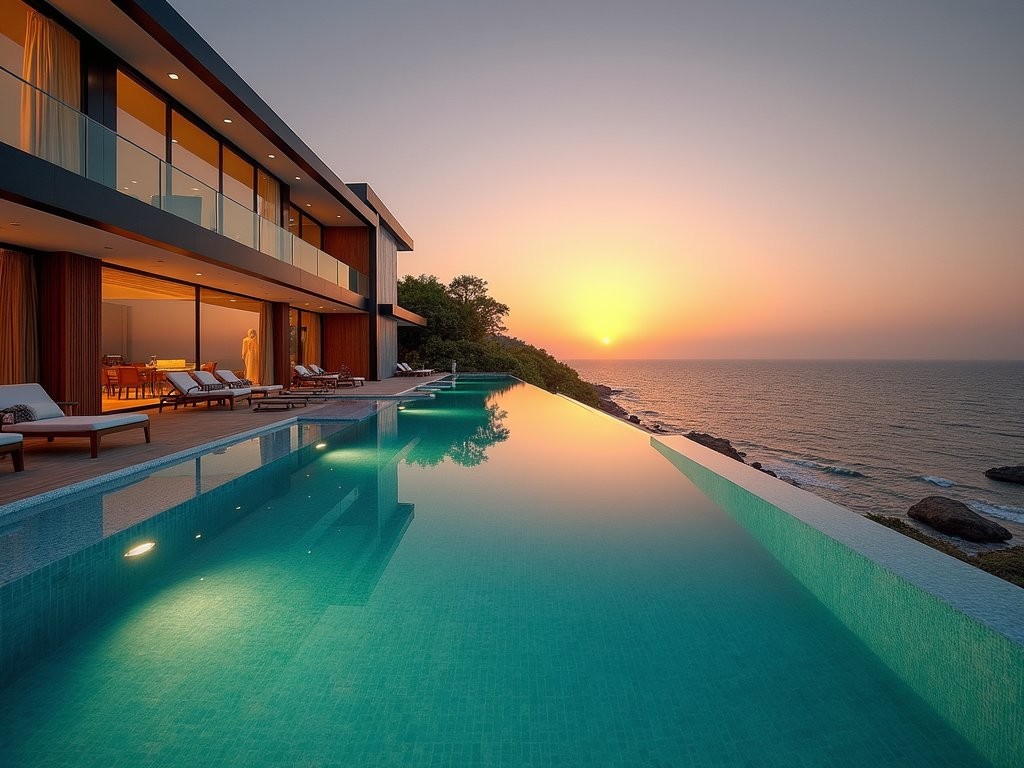
💡 Pro Tips
- Request a north-facing suite for optimal sunset views over the Atlantic without afternoon heat
- The property's noise-cancellation technology works best when balcony doors are fully closed
- Book the hotel's private electric vehicle for city explorations rather than conventional taxis—they're equipped with excellent guided tour technology
Newport's Gilded Tech: Where Heritage Meets Hidden Innovation
If Dakar represents technology boldly announcing itself on the hospitality stage, Newport's approach whispers rather than shouts. The Vanderbilt Residences—a 19th-century mansion meticulously transformed into a 22-suite boutique hotel—exemplifies how America's most historic coastal destinations are integrating modern conveniences while preserving architectural integrity.
My arrival experience contrasted sharply with Dakar's facial recognition efficiency. Here, check-in involved being ushered into a wood-paneled library where registration occurred over Champagne and locally sourced oysters. The process felt delightfully analog, though I later discovered the property employs a sophisticated guest management system operating discreetly behind its Gilded Age façade.
My harbor-view suite revealed Newport's particular genius: technology embedded so seamlessly within historical contexts that it becomes nearly invisible. Period-appropriate wall sconces contained adjustable LED systems controllable via an antique-styled bedside panel. The ornate fireplace operated on clean-burning bioethanol activated by touch. Even the clawfoot bathtub featured precisely controlled digital temperature regulation disguised within original brass fixtures.
The property's approach to connectivity proved equally thoughtful. Rather than broadcasting its technological capabilities, The Vanderbilt conceals them within historical elements. The leather-bound book on my writing desk cleverly housed a wireless charging station. The antique secretary desk contained perfectly positioned outlets and USB ports. Even my laptop stand found a perfect home on furniture designed a century before portable computing existed.
Dining at The Vanderbilt celebrates New England's maritime heritage through hyperlocal sourcing. The kitchen's commitment to regional provenance rivals Dakar's blockchain tracking, though accomplished through personal relationships with local fishermen and farmers rather than digital systems. The lobster tasting menu with paired New England wines proved exceptional, particularly when enjoyed on the property's rooftop terrace overlooking Newport Harbor.
The property's wellness offerings reflect a similar philosophy of disguised innovation. The spa, housed in what was once the mansion's conservatory, features traditional treatments alongside cutting-edge therapies. I particularly recommend the recovery session that combines traditional massage techniques with percussion therapy to address travel fatigue—especially beneficial after long-haul flights.
For couples, Newport's charm lies in its romantic juxtaposition of past and present. The Vanderbilt arranges private sailing excursions aboard meticulously restored classic yachts now powered by hybrid engines—a perfect metaphor for the destination itself.
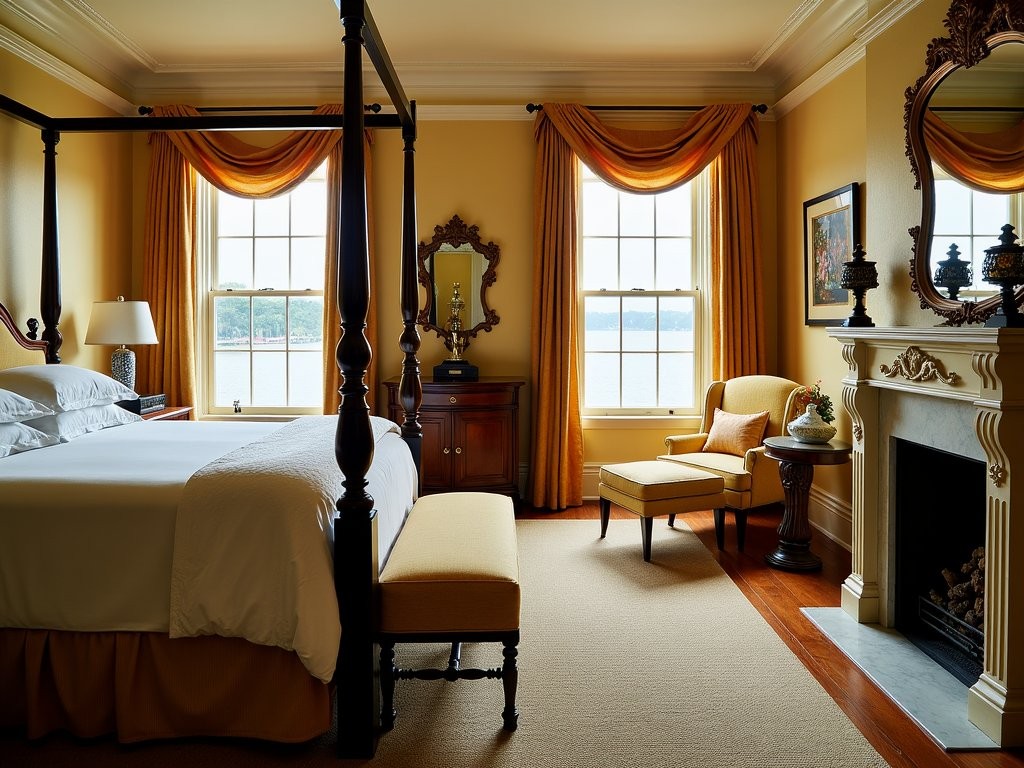
💡 Pro Tips
- Book the Commodore Suite for harbor views and the best-preserved original architectural details
- Request advance access to the property's extensive wine cellar for private tastings with the sommelier
- The hotel can arrange after-hours private access to Newport's historic mansions—worth the premium for photography enthusiasts
Digital Concierge Services: A Tale of Two Approaches
Perhaps no aspect better illustrates the contrasting philosophies of these coastal properties than their respective approaches to concierge services. Both excel at creating bespoke experiences, yet their methodologies reveal distinct cultural perspectives on luxury service delivery.
In Dakar, Océan Numérique has developed a proprietary AI-driven concierge platform that learns guest preferences through both explicit inputs and behavioral analysis. Three days into my stay, the system had accurately predicted my preference for early morning coffee delivery, afternoon cultural excursions, and evening dining reservations at establishments featuring fusion cuisine. The digital interface—accessible via in-room tablets, mobile application, or voice activation—operates in five languages and demonstrates impressive contextual understanding.
Yet what elevates this system beyond mere convenience is its human augmentation component. The AI identifies patterns and possibilities, but recommendations are refined by local staff members who add cultural context and personal touches impossible to algorithmically generate. When I expressed interest in contemporary Senegalese art, the system identified relevant galleries, but my human concierge added invaluable commentary about emerging artists and arranged introductions to creators whose work aligned with my expressed aesthetic preferences.
Newport's Vanderbilt Residences takes an entirely different approach. The property deliberately avoids visible technology in its guest services, instead relying on exceptionally trained staff with deep local knowledge. Rather than a digital interface, guests communicate through personal butlers assigned to each suite who coordinate all aspects of the stay. My butler, Thomas, having spent three decades in Newport, possessed encyclopedic knowledge of the destination that no algorithm could match.
The property does employ sophisticated systems behind the scenes—I discovered they use advanced analytics to anticipate guest needs and coordinate service delivery—but the guest-facing experience remains refreshingly analog. When I needed a portable power bank after depleting my device during a lengthy photography session along the Cliff Walk, Thomas discreetly provided one within minutes, having noted my photography equipment upon arrival and anticipated this potential need.
For couples seeking connected experiences, both approaches offer distinct advantages. Dakar's system excels at efficiency and personalization at scale, while Newport's human-centered model creates opportunities for genuine relationship development with staff who become trusted advisors throughout the stay. The ideal, perhaps, would be a thoughtful hybrid of both approaches—something I suspect we'll see emerging in luxury coastal properties worldwide in coming years.

💡 Pro Tips
- In Dakar, input detailed preference information during pre-arrival communications for more accurate AI recommendations
- At The Vanderbilt, schedule a brief meeting with your butler upon arrival to discuss preferences and interests for more tailored service
- Both properties offer excellent mobile connectivity, but Newport's historic construction sometimes creates signal challenges in certain areas of the property
Culinary Programming: Ocean to Table Philosophies
The gastronomic approaches at these coastal properties reveal perhaps the most fascinating convergence of their otherwise divergent philosophies. Both embrace hyper-local sourcing and ocean-to-table practices, yet execute these principles through distinct cultural lenses.
At Dakar's Océan Numérique, Executive Chef Marie Seck has pioneered what she terms "heritage innovation"—traditional Senegalese recipes deconstructed and reimagined through contemporary techniques. The property maintains partnerships with specific local fishing collectives who use sustainable practices, with catch information digitally tracked and made available to guests via QR codes on menus. This transparency extends to the property's impressive urban garden where indigenous herbs and vegetables are cultivated using smart irrigation systems that optimize water usage—a thoughtful consideration in Senegal's sometimes challenging climate.
The tasting menu experience at Fusion Maritime became a highlight of my Dakar stay. Each course arrived with dual explanations: the dish's historical significance in Senegalese culinary tradition and the technical innovations applied in its contemporary presentation. The ceviche of locally caught dorade with preserved lemon and fermented chilies particularly exemplified this balance—traditional flavor combinations elevated through precise technical execution.
Newport's Vanderbilt approaches oceanic bounty through a distinctly New England lens, emphasizing heritage preparation methods and long-established relationships with Rhode Island's fishing community. Rather than technological tracking, the property relies on generations of personal connections with specific boats and families. The resulting menu changes not just seasonally but daily, based on morning conversations between the chef and fishermen returning to Newport Harbor.
The property's signature "Harbor Heritage" dining experience transforms the mansion's formal dining room into an intimate setting where New England's maritime culinary history unfolds through seven meticulously researched courses. Each dish corresponds to a specific period in Newport's development, from early colonial preparations to Gilded Age extravagance. The narrative component elevates the experience beyond mere consumption to cultural education.
Both properties excel at wine programming that complements their coastal settings. Océan Numérique surprised me with an impressive selection of emerging South African and Moroccan wines, while The Vanderbilt maintains one of New England's most comprehensive collections of small-production East Coast vintners. For special occasions, I recommend splurging on The Vanderbilt's private cellar dining experience, where courses are served in the property's original wine vault alongside exceptional pairings.
For traveling couples with culinary interests, both properties offer hands-on experiences worth scheduling in advance. Dakar's market tour and cooking class provides insight into ingredient selection and traditional techniques, while Newport's oyster farm excursion concludes with a shucking masterclass and champagne tasting that perfectly captures Rhode Island's coastal bounty.
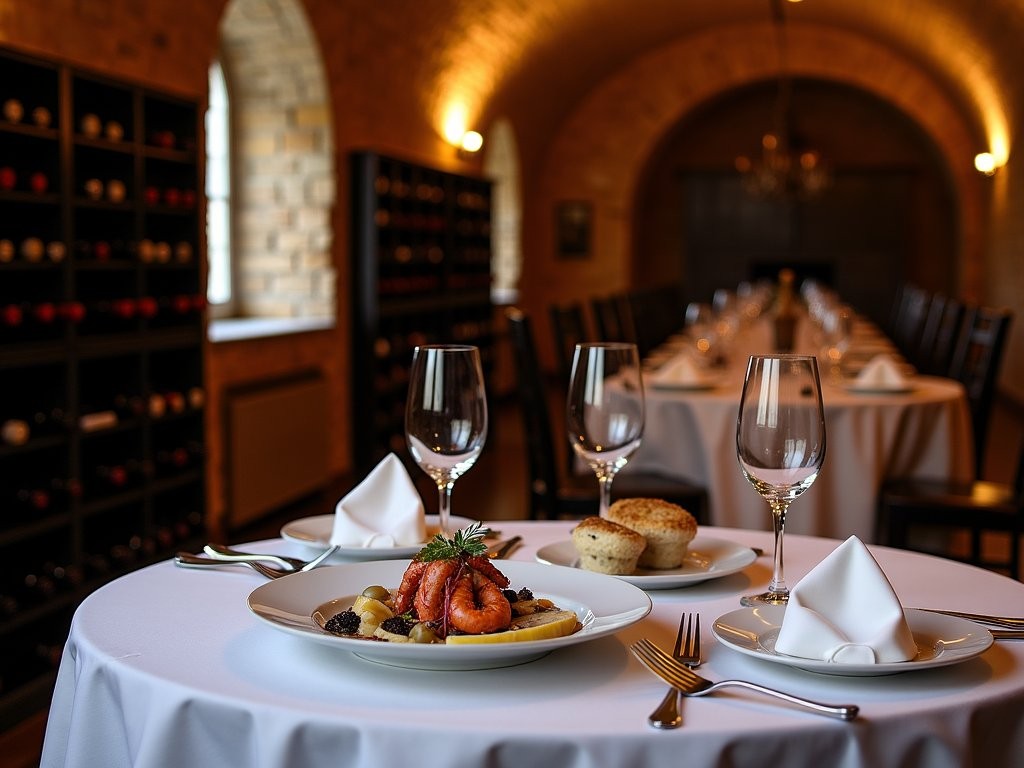
💡 Pro Tips
- At Océan Numérique, request the chef's counter seating for interactive course explanations
- Book The Vanderbilt's lobster bake experience at least two weeks in advance—it frequently sells out during summer months
- Both properties accommodate dietary restrictions with advance notice, but Newport's historical menu adaptations for special diets are particularly impressive
Waterfront Wellness: Contrasting Approaches to Oceanic Rejuvenation
The proximity to ocean waters fundamentally shapes the wellness philosophies at both properties, yet their interpretations of maritime healing traditions diverge in fascinating ways that reflect broader cultural contexts.
Dakar's approach at Océan Numérique represents a forward-looking fusion of traditional West African healing practices with contemporary wellness technology. The property's stunning infinity spa appears to cascade directly into the Atlantic, with treatment rooms featuring retractable glass walls that, when open, allow the ocean breeze to permeate the space. The signature "Digital Detox" treatment sequence begins paradoxically with biometric scanning to establish baseline stress indicators before progressing through a series of interventions designed to reset nervous system function.
What particularly impressed me was the property's integration of traditional Senegalese healing elements within this high-tech framework. My treatment incorporated locally harvested clay and botanical elements prepared according to traditional methods, applied by therapists trained in both contemporary techniques and practices passed down through generations. The contrast between the treatment room's advanced climate control and lighting systems and the ancient knowledge informing the therapeutic approach created a compelling tension between innovation and tradition.
The property's movement studio offers another dimension of this integration, with classes combining traditional Senegalese dance elements with contemporary fitness methodologies. The morning oceanfront yoga sessions incorporate movement patterns derived from local cultural practices, creating a practice that feels simultaneously universal and specifically place-based.
Newport's Vanderbilt takes an entirely different approach to oceanfront wellness, emphasizing historical continuity and the destination's long association with maritime healing traditions. The spa occupies what was once the mansion's conservatory, with original glass ceilings now providing abundant natural light for treatment areas designed to evoke the property's Gilded Age origins.
The wellness menu draws heavily on New England's historical relationship with the sea, incorporating local elements like Atlantic sea salt, native botanicals, and marine minerals. The signature "Newport Revival" treatment references the city's history as a health resort for America's elite during the late 19th century, when sea bathing and salt-infused air were prescribed as remedies for urban ailments.
My travel massage roller remained unused during my Newport stay, as the property's recovery-focused treatments addressed travel tension more effectively than self-administered methods. The combination of traditional massage techniques with targeted cold therapy—a nod to Newport's maritime climate—proved particularly effective for post-flight recovery.
Both properties offer excellent fitness facilities, though their approaches again reveal distinctive philosophies. Dakar's glass-enclosed gym features state-of-the-art equipment with integrated performance tracking, while Newport houses its fitness center within the mansion's former ballroom, with equipment selected to complement the historical surroundings rather than contrast with them.
For couples seeking shared wellness experiences, both destinations excel at creating memorable options. Dakar's private sunset sound healing session on a secluded section of beach offers a uniquely African interpretation of vibrational therapy, while Newport's private chartered sail combines the therapeutic benefits of ocean air with the romance of traditional yachting—each experience emblematic of its respective destination's approach to oceanfront rejuvenation.
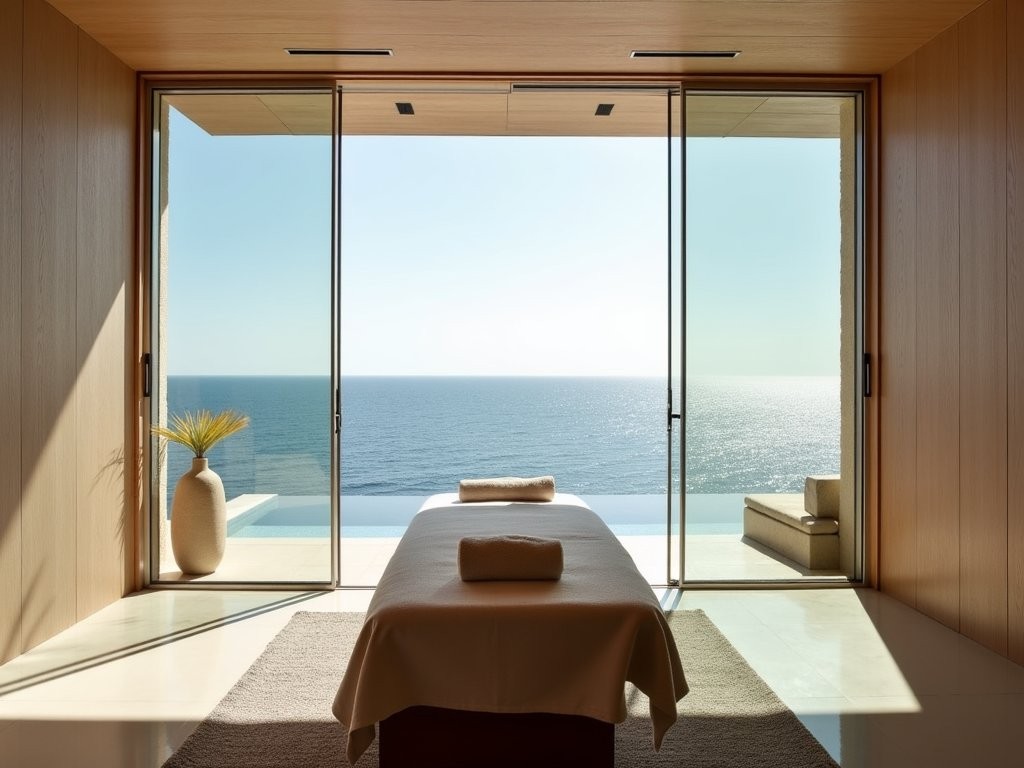
💡 Pro Tips
- Book Dakar's oceanfront treatment rooms in morning hours when natural light is optimal but temperatures remain moderate
- Request Newport's heritage hydrotherapy circuit at least 30 minutes before scheduled treatments for maximum benefit
- Both properties offer excellent recovery treatments for jet lag—schedule these within 24 hours of arrival for best results
Smart Sustainability: Eco-Luxury in Different Contexts
Perhaps the most encouraging convergence between these otherwise contrasting properties lies in their mutual commitment to environmental stewardship, though their approaches reflect different stages of technological implementation and cultural contexts.
Dakar's Océan Numérique was conceived from inception as a showcase for sustainable luxury development in West Africa, with environmental systems integrated into the core architectural planning rather than added as afterthoughts. The property operates on a sophisticated smart grid that optimizes energy usage based on occupancy patterns, weather conditions, and time of day. Solar capacity provides approximately 60% of the property's energy needs—impressive for a full-service luxury hotel—with intelligent load management ensuring critical systems receive priority during peak demand periods.
Water management represents another triumph of thoughtful systems design. Atmospheric water generators supplement municipal supply, while graywater recycling systems capture and treat water from sinks and showers for landscape irrigation. The property's desalination capabilities provide emergency backup while minimizing environmental impact through advanced discharge management that protects marine ecosystems.
What impressed me most was the property's commitment to transparent performance metrics. A discreet display in the lobby shows real-time resource consumption and generation data, while in-room tablets allow guests to monitor their individual usage patterns. This accountability creates gentle social pressure for conservation without compromising the luxury experience.
Newport's Vanderbilt faced entirely different challenges in implementing sustainable systems within a historically significant structure where visible modifications are strictly limited. The property's approach demonstrates how heritage buildings can achieve remarkable efficiency through careful retrofitting and operational excellence.
The mansion's original construction actually provides certain sustainability advantages—thick walls provide natural insulation, while historical airflow design principles have been augmented rather than replaced. Modern systems have been meticulously integrated within existing structural elements: geothermal exchange systems utilize the property's extensive grounds, while historical chimneys now cleverly conceal energy recovery ventilators.
Waste reduction strategies at both properties deserve particular mention. Dakar has implemented an impressive composting operation that processes organic waste into fertilizer for local community gardens, while Newport has developed relationships with regional artisans who transform potential waste materials into value-added products—from driftwood furniture to sea glass art installations that appear throughout the property.
For environmentally conscious couples, both properties offer behind-the-scenes sustainability tours worth requesting. Dakar's technology-focused exploration showcases cutting-edge systems, while Newport's historical sustainability narrative provides fascinating context for how luxury hospitality can honor both heritage and environmental responsibility.
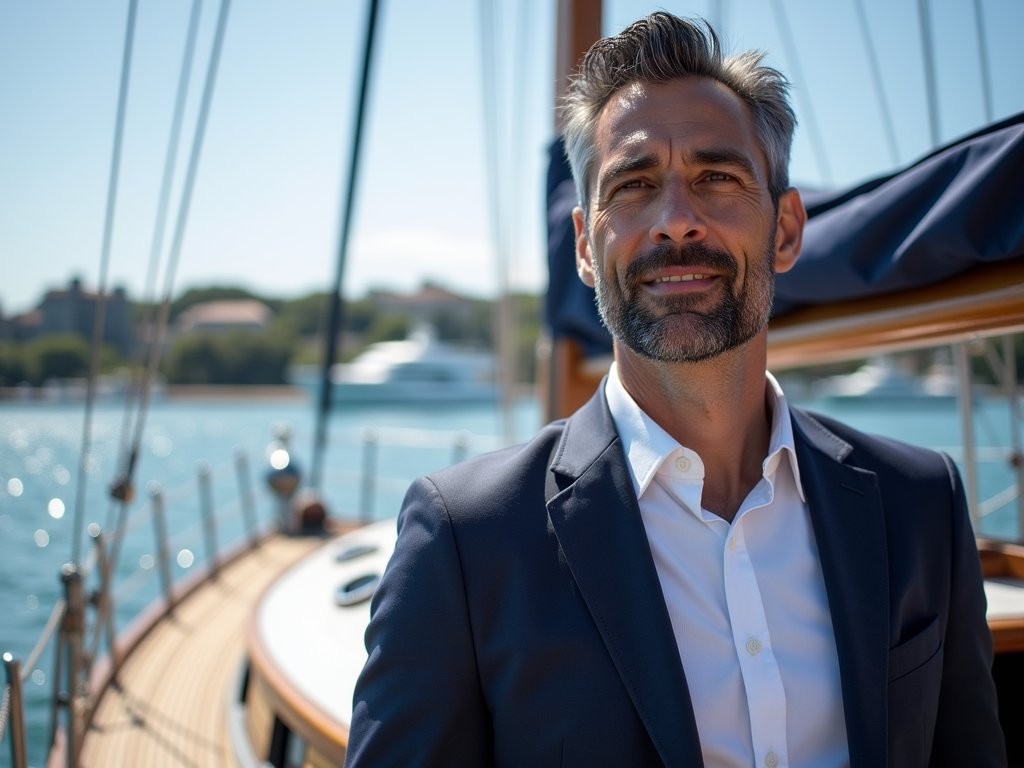
💡 Pro Tips
- Use Dakar's in-room tablet to monitor and adjust your suite's energy consumption patterns
- Request information about Newport's historical preservation techniques that double as sustainability measures
- Both properties offer reduced rates for guests arriving via public transportation or electric vehicles—worth inquiring about during booking
Final Thoughts
These coastal properties, separated by an ocean and distinct cultural contexts, reveal fascinating convergences and divergences in how luxury hospitality interprets oceanic proximity. Dakar's Océan Numérique represents the bold emergence of African luxury that proudly showcases technological innovation while honoring Senegalese traditions. Newport's Vanderbilt Residences demonstrates how America's historic coastal destinations can integrate contemporary conveniences while preserving architectural heritage and maritime traditions.
For couples seeking sophisticated coastal experiences, the choice between these destinations ultimately depends on whether you prefer innovation that announces itself or innovation that whispers. Both deliver exceptional oceanfront luxury, though through distinctly different lenses—one celebrating the future possibilities of African hospitality, the other honoring the storied maritime legacy of New England.
Perhaps the most valuable insight from experiencing these properties in close succession is recognizing how smart luxury increasingly transcends geographical boundaries while simultaneously becoming more place-specific. The truly sophisticated traveler can appreciate both approaches: technology that transforms the guest experience and tradition that grounds it in authentic sense of place. In this dialogue between innovation and heritage, we glimpse the future of coastal luxury—one that honors both the universal language of the sea and the distinct regional dialects through which we interpret its timeless rhythms.
✨ Key Takeaways
- Both destinations excel at integrating smart technology into luxury experiences, though with dramatically different approaches to visibility
- Dakar represents the exciting emergence of African luxury hospitality with sustainability built into core systems
- Newport demonstrates how historical properties can achieve remarkable efficiency through careful retrofitting
- Coastal boutique properties increasingly differentiate through distinctive interpretations of oceanic proximity rather than generic luxury markers
📋 Practical Information
Best Time to Visit
May-June for Dakar (before rainy season), June-August for Newport (peak sailing season)
Budget Estimate
$650-950/night for comparable ocean-view suites at both properties
Recommended Duration
3-4 nights per destination
Difficulty Level
Beginner
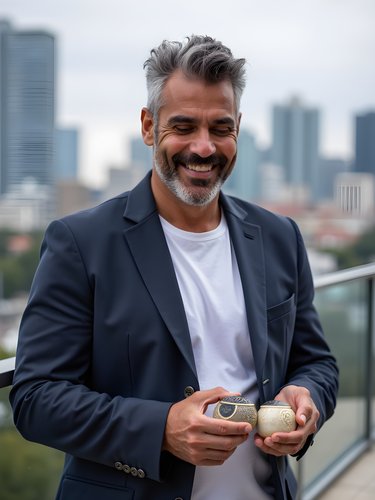
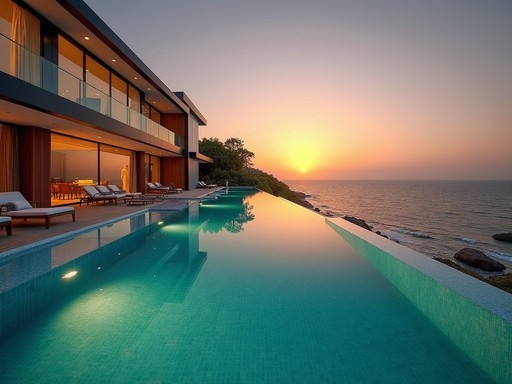
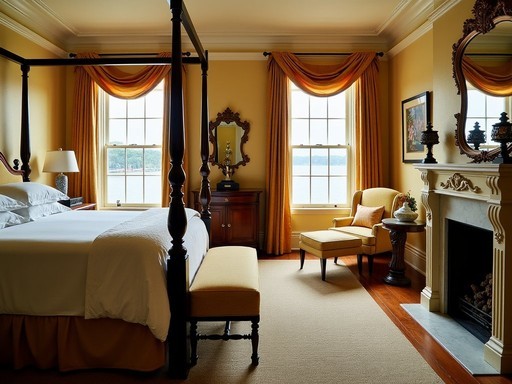

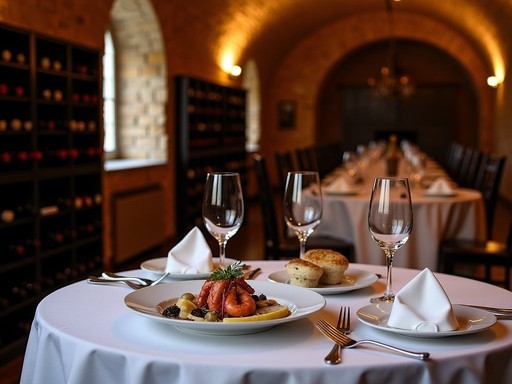
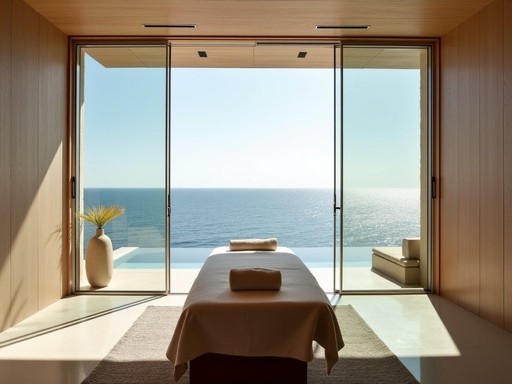
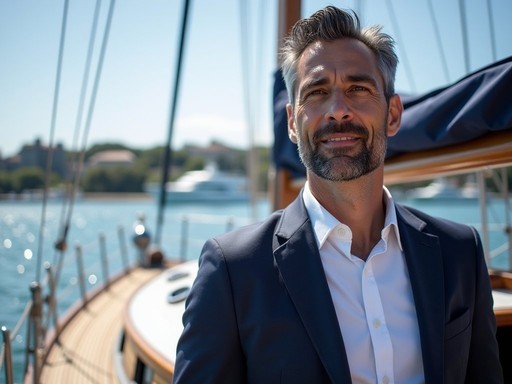


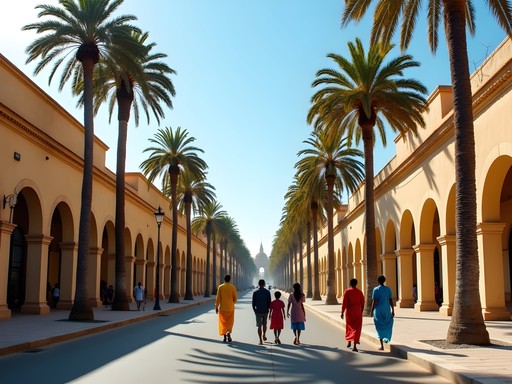
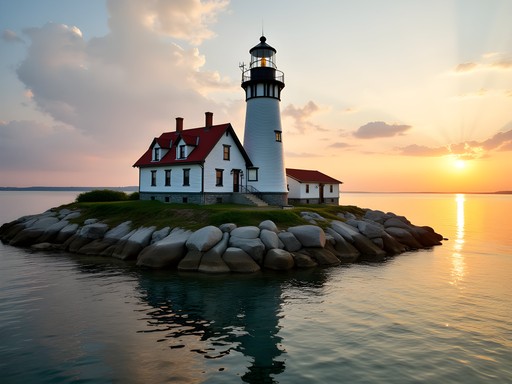

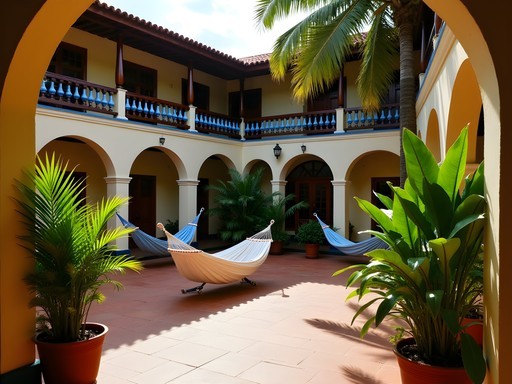
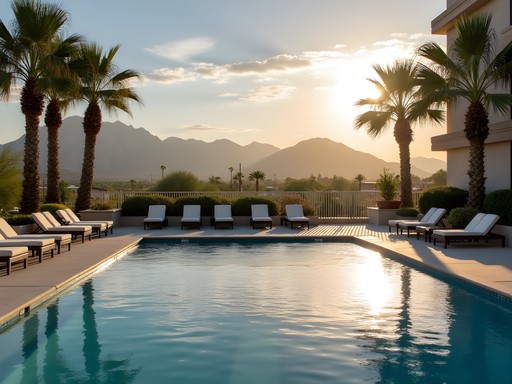
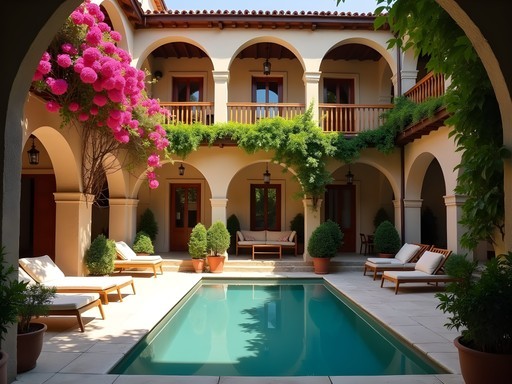
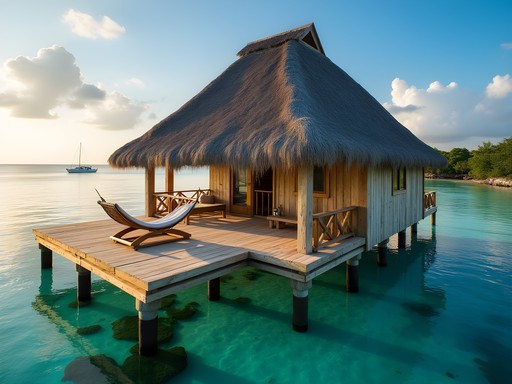
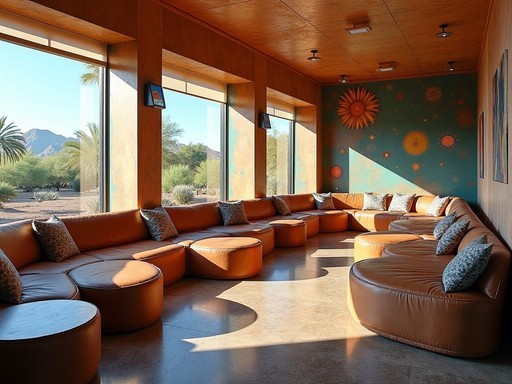
Comments
oceanbuddy
Been to both and totally agree with your take on the culinary differences! Newport's seafood is classic but Dakar's bold flavors and fresh catches blew me away. Those breakfast pastries in Dakar with the French-Senegalese fusion were incredible too!
roamchamp
Great post! Really like your photo style
Claire Hawkins
Dylan, this comparison couldn't have come at a better time! We're planning our family summer trip and debating between these exact destinations. My kids (7 and 9) are ocean-obsessed, and I'm wondering which you'd recommend for families? Newport seems more structured, but Dakar looks like it might offer more authentic cultural experiences. Did either location have standout family programming? The digital concierge comparison was particularly helpful - with kids, I need responsive service rather than just fancy tech. Also, did either location offer good opportunities for children to learn about marine conservation?
Dylan Turner
Claire, for ocean-obsessed kids, both are great but different. Newport has more structured kids' programs and sailing lessons. Dakar offers amazing cultural immersion and their marine conservation program lets kids help with beach cleanups and learn about local ecosystems. My vote would be Dakar for the educational value, but Newport for ease with younger children.
Savannah Walker
I stayed at a boutique property on Île de Gorée just off Dakar last year and it completely changed my perspective on West African coastal travel. The sunset views over the Atlantic were unreal, and the story of how the owner integrated traditional Senegalese architecture with modern sustainable design was inspiring. One tip for anyone heading there - the seafood thieboudienne at local spots near the hotels is incredible and way more authentic than hotel restaurants. Also, I kept all my travel docs organized with this travel wallet which was clutch for the multiple currency situations.
skyseeker
Île de Gorée is on my list! Did you do a day trip or stay overnight?
Savannah Walker
Stayed two nights! Totally worth it to experience the island after the day trippers leave. So peaceful.
bluemaster
Newport's still better for sailing.
vacationstar
WOW those photos are gorgeous!! Never heard of Dakar before but adding it to my bucket list now 😍
Gregory Boyd
Really appreciate the analytical approach here, Dylan. The contrast between how digital concierge services are implemented in these two markets is fascinating - Newport leaning into heritage preservation while Dakar embraces mobile-first solutions. I found similar patterns when comparing boutique properties in Cape Town vs. Charleston. The ocean-to-table philosophy resonates differently depending on local fishing traditions and supply chains. Did you notice significant price point differences for comparable amenities between the two destinations?
tripadventurer
Good question! I'm curious about this too
journeylover
Wow those sunset photos from Dakar are STUNNING! Adding both to my bucket list!
skyseeker
Love this comparison!! Been wanting to explore West Africa and this just moved Dakar way up my list 🌊
tripadventurer
This is really interesting! I've been to Newport but never considered Dakar. Is it easy to get around without speaking French?
Savannah Walker
I found most people in the tourist areas spoke some English, but learning a few French phrases definitely helps! The hospitality (teranga) is amazing though - people go out of their way to help.
Venture X
Premium card with 2X miles, $300 travel credit, Priority Pass